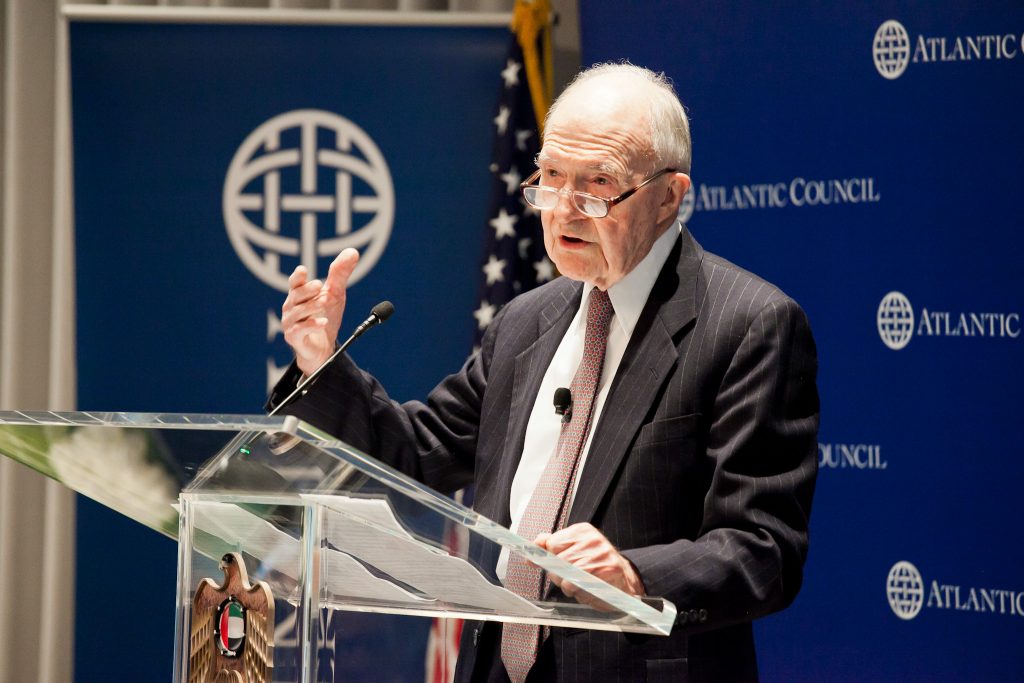
From James Joyner, the New Atlanticist: General Brent Scowcroft argues that NATO’s Libya intervention may point to the future of the military alliance as the go-to enforcer of UN Security Council resolutions.
Delivering the Atlantic Council’s 5th Annual Christopher J. Makins Lecture at the Embassy of the United Arab Emirates , the National Security Advisor to Presidents Gerald Ford and George H.W. Bush noted that he was "not a fan" of intervening in Libya, which he saw as too low a priority for American national security to justify the use of force. Nonetheless, he sees it as a plausible model for the Alliance in which a call for help by regional actors is met with a United Nations Security Council resolution authorizing force and then a coalition of the willing of NATO members and regional partners carries out the operating.
He notes that the UN Charter envisions a standing force to serve just this purpose but that it has never come into being for obvious reasons; NATO might become the de facto realization of this vision. . . .
As to the Alliance becoming the Security Council’s enforcement arm, it’s a notion that Joshua Foust and I mocked as "Team America for R2P" in a New Atlanticist roundtable a year ago. While potentially a recipe for perpetual war, it’s unlikely to materialize any time soon for reasons that Scowcroft highlighted in his post-speech conversation with Atlantic Council president and CEO Fred Kempe: Russia and China are angry that their abstention to allow the passage of a Security Council authorization to protect civilians in Libya was used to justify a regime change mission and won’t let that happen again. We’ve already seen that in Syria, where the humanitarian nightmare far exceeds what was happening in Syria.
James Joyner is managing editor of the Atlantic Council.
